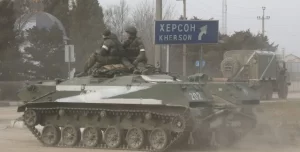
Famous football player and referee Vladimir Shelia dies in Kutaisi
The author of these lines has known Vladimir Shelia since 1970, when he played for Dynamo Sukhumi, the youth teams of Georgia and the USSR. Then I was ten years old and, together with my neighbors and several classmates from the 17th secondary school in Sukhumi, I often attended matches of the local Dynamo in the second league of the USSR championship, friendly games with clubs of the highest and first leagues of the USSR. Then V. Shelia was one of the best players in the Sukhma team. As today I remember his brilliant passes at the old stadium in Sukhumi (Ordzhonikidze Street), his attentive attitude to the players, to the audience, especially children, his special sense of humor.
Shelia is a native of the city of Gagra, was born there on November 20, 1953. It was in Gagra that he took his first steps in football, in 1969 he played in the reserve team of Dynamo Tbilisi, then for Sukhum Dynamo (1970-71) and Torpedo Kutaisi (1972-82). Since 1984, V. Shelia has been a football referee, as a referee of the republican category, he has refereed the matches of the Georgian championship, since 1986 – matches of the USSR Second League, since 1987 – the USSR First League, in 1994-95 he was one of the coaches of Torpedo Kutaisi, in 1996-1999 refereed matches of the second and first leagues of the championship of the Russian Federation, was the coach of FC Orlyonok Moscow, then worked in Moscow in the business sector. In 2015 he returned to Kutaisi, where he lived with his family until today.
With Vova Shelia repeatedly met during his performance for the Sukhum Dynamo, Kutaisi Torpedo, saw him more than once during his life in Kutaisi and in Moscow, and in recent years in Kutaisi. We offer you my exclusive interview with him, published in January of this year and dedicated to his game in the USSR youth team together with Oleg Blokhin.
– Vova, when did you meet Blokhin?
– As part of preparations for the 1971 European Championship, which was held in Czechoslovakia, the youth team of the USSR under the guidance of a senior coach, an excellent specialist Yevgeny Lyadin (1926-2011), held a training camp in the Black Sea city of Ochamchira, we played a couple of friendly games. I have known Oleg since 1970, and in 1971 this acquaintance grew into friendly relations. Together with O. Blokhin and the talented Dynamo Moscow forward Anatoly Kozhemyakin (1953-74), I spent my free time from training together. After training and games, the three of us went for a walk together, as was the case in Czechoslovakia, in May 1971. Before going to the European Championship, the youth team of the USSR played a friendly match in Kyiv with the local Dynamo. Unexpectedly for many, the young men defeated the experienced Kyiv Dynamo (3:1), Oleg scored one goal, I also excelled.
After the match, the outstanding coach Konstantin Beskov (1920-2006), who was in Kyiv with the USSR Olympic team, came up to me and said: “Vova, I want to invite you to Dynamo Moscow. I answered him: “Thank you very much, Konstantin Ivanovich, but my dream is to return to Dynamo Tbilisi and gain a foothold in the main team, in whose double I played in 1969.” Beskov, who addressed the players with “You,” answered kindly, “I understand you, but the invitation remains in force.” At that time, almost all talented footballers born in Georgia dreamed of getting into Dynamo Tbilisi and did not think of playing in any team outside of Georgia.
At the European Championship in Czechoslovakia, Blokhin and Kozhemyakin played very well, they showed themselves excellently in the youth national team of the USSR, the football player of the Odessa “Chernomorets” Leonid Buryak “(he later played for Kiev” Dynamo “,” Torpedo “Moscow and” Metalist “Kharkov, ten years .USSR), Moscow Dynamo player Anatoly Baidachny (later he played for Minsk Dynamo and sb.SSSR) and others, they say that I also played well (laughs), having played 4 out of 5 matches, I played with Bulgaria (Trutnovo, 5: 0), Belgium (Pardubice, 2:2), Wales (Hradec-Kralove, 3:2) and with the GDR (Prague, 1:1, won the GDR 4:2 on penalties), having missed the match with England in Prague (1: 1, England won 5-3 on penalties). By the way, England became the European Champion in 1971, defeating Portugal in the final, the GDR took third place, and the USSR fourth.
Fight with taxi drivers in Prague
– In Prague, you, Blokhin and Kozhemyakin got into a fight with taxi drivers, how did this happen?
-After the match with the GDR, I, Oleg and Viktor, with the permission of the coaches, went to the city, Oleg had previously been to Prague as part of the Kyivans and knew the city. used, just drank a glass of beer, and then decided to return to the International Hotel, where Sat. USSR . Near the bar there were 5-6 taxi cars, we began to ask the drivers to take us to the hotel, they promised to pay as expected. But the taxi drivers refused, recognizing us as players from the USSR. This offended us, because we, the players, had nothing to do with the events of August 1968 (meaning the entry of troops of the USSR and 4 other socialist countries members of the Warsaw Pact into Czechoslovakia, this fact in the West and in Czechoslovakia was called the occupation of the country, in Czechoslovakia and in many countries of the world then and later held protests against the occupation of Czechoslovakia – approx.). Seeing the refusal of the taxi drivers, we moved a little further from the bar, finding a free taxi, I got into the car and said that we, the players, are asking to be taken to the hotel, we are ready to pay. Oleg and Victor were about to get into the car, at that time the taxi driver got out of the car and started shouting to colleagues who were standing nearby. The same taxi drivers who refused to take us to the hotel ran to us, holding tire irons in their hands. They began to beat us, believing that we had offended their colleague (in fact, there was nothing like that): we had to give the taxi drivers “change” with their fists: in my youth, in my native Gagra, I sometimes had to fight, protecting myself, friends and girls from “tour performers “from different cities, Anatoly and Oleg were also strong guys and could stand up for themselves and their friends. Taxi drivers did not expect such an answer from the players and ran away. Then we walked several tens of meters on foot and caught a taxi, this time we got a friendly Czech driver, he took us to the hotel. In the morning I asked Oleg for his black glasses, trying not to show the coaches the bruise I got the day before, because we got it in the fight. And the coaches already knew about everything, they were worried, but they were pleased that everything ended without serious consequences. The employees of that Prague hotel, with whom we, the players, had very good relations, were also worried about this story. The story with the taxi drivers in Prague was remembered forever – I don’t hold a grudge against them, I understand what time it was, but we were football players and they treated us like that in vain.
– And who else do you remember from the youth team of the USSR in 1971?
– Many talented football players played in that USSR national team at the European Championship in Czechoslovakia. In addition to Blokhin, Kozhemyakin, Buryak and Baydachny, Alexander Damin, Viktor Zuev played (both Dynamo Kyiv, Damin played for the Leningrad Zenit in 1977-78), Ruslan Suanov (a pupil of Ordzhinikidzevsky Spartak, played in 1971-72 for the double Dynamo Kiev, then for the clubs of Ukraine and the Russian Federation, died in 2005), Yuri Romensky (then the goalkeeper of Neftchi Baku, then Chernomorets Odessa, Dynamo Kyiv and Sat. USSR), Gennady Kurganov (” Shakhtar Donetsk), Mikhail Prozorovsky (Lokomotiv Vinnytsia), Yuri Zhukov CSKA, Alexander Ovrakh (Spartak Moscow), Alexander Gurinovich (Dynamo Minsk), Alexander Trusov (then playing for Volga Kalinin, then for Lokomotiv Moscow, Dynamo and CSKA), Stasis Trainavichus (Zalgiris). I remember all the guys well.
Tengiz Pachkoria, Honored Journalist of Georgia


Average Rating